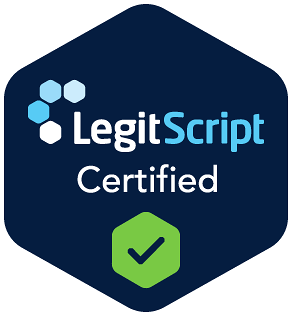
Milton, a charming city in Fulton County, Georgia, blends rural beauty with a thriving business environment. Located 31 miles north of Atlanta, it’s known for its picturesque landscapes and high-quality living standards. With a population of around 39,000, Milton has been experiencing growth in various sectors, including the need for effective drug rehabilitation services.
While Milton has not escaped the drug epidemic in recent years, it’s now a central hub of recovery. At North Atlanta Behavioral Health, we provide access to drug and alcohol rehab in Milton, Georgia.
At North Atlanta Behavioral Health, we believe that recovery should be accessible to those who may not be able to attend a traditional 30 day treatment center, and still need to attend to their daily obligations.
Our structured environment allows individuals to attend outpatient programming, so they can continue going to work, school, or fulfilling daily obligations while getting the help they need.
Our Facility Near Milton, Georgia
Contact Us
Your email address will not be published. Required fields are marked *
Our Outpatient Rehab Programs
North Atlanta Behavioral Health offers personalized alcohol and drug rehab in Georgia that is made to fit the complex needs of each client’s situation. Our outpatient rehab programs include:
- Partial Hospitalization Program (PHP): A full-time program designed for those needing daily care, but not 24-hour monitoring. In a PHP program, clients attend treatment during the day and go home or to a sober living program during the evening.
- Intensive Outpatient Program (IOP): IOP programs provide structured treatment while allowing clients to maintain their daily routines. IOP programs run a minimum of nine hours per week.
- Evening IOP: Evening IOP is tailored for individuals who require treatment flexibility to accommodate their daily obligations. Evening IOP programs run Monday through Thursday from 6 PM to 9 PM.
Milton, Georgia Addiction Statistics
Milton, Georgia, while known for its serene and rural charm, is not immune to the challenges of drug addiction that are prevalent across the United States. The city’s struggle with substance abuse is reflected in several notable incidents and statistics:
1. Major Drug Busts: Milton has experienced significant drug-related incidents that shed light on the underlying issues of substance abuse within the community. For instance, in May 2022, the Milton Police Department made its largest drug bust in history, seizing $200,000 and 10,000 bags of heroin mixed with fentanyl. This bust was part of a larger investigation into drug sales not just in Milton, but also in surrounding areas. Such incidents indicate a significant presence of dangerous drugs within the community.
2. Widespread Impact Across Counties: One of Milton’s most significant drug busts spanned across six metro Atlanta counties. In 2019, authorities discovered $2 million worth of methamphetamine at a horse ranch. In the same year, a raid on a rental house off Mountain Road in Milton uncovered 420 pounds of methamphetamine, valued at $1.7 million. These events highlight how drug production and distribution networks can extend beyond Milton, affecting broader regions.
3. Public Health Hazards: The production centers involved in these drug operations not only distribute illicit substances but also pose public health risks due to the hazardous chemicals left behind in the manufacturing process. This aspect underscores the dual challenge of addressing both the illegal drug trade and its consequential environmental and health hazards.
4. Moderate Drug Abuse and Crime Rate: Despite these high-profile cases, Milton’s overall drug abuse and crime rates are considered moderate, especially when compared to more urban areas. However, due to its rural surroundings, any such incidents tend to gain more attention and highlight the need for effective drug rehabilitation and prevention strategies.
These statistics and incidents underline a critical need for robust drug rehab services and prevention programs in Milton. They point towards a hidden aspect of substance abuse that can pervade even the most idyllic and rural communities. Addressing these issues proactively through community engagement, education, and accessible rehabilitation services is essential to ensure the well-being and safety of Milton’s residents.
Recovery Resources in Milton
North Atlanta Behavioral Health is in close proximity to Milton. However, many local recovery resources can help extend resources and community involvement for long-term recovery. Learn more about local Milton resources below.
Helplines
Georgia Crisis & Access Line
(800) 715-4225
Georgia Substance Abuse Helpline
(800) 338-6745
Atlanta Crisis Hotline
(404) 730-1600
Hospitals
6325 Hospital Pkwy, Johns Creek, GA, 30097
Northside Hospital/Alpharetta Campus
3400 Old Milton Parkway, Alpharetta, GA, 30005
(770) 667-7000
Overcome Addiction with evidence-based, expert care.
Which Rehab Program Is Best for Me?
Choosing the right rehab program for yourself or a loved one is a crucial decision that can significantly impact the recovery journey. Here are some key factors to consider when determining the most suitable rehab program:
1. Severity of Addiction: The intensity and duration of substance abuse play a critical role in selecting a program. More severe or long-term addictions might require inpatient treatment programs where intensive care and medical supervision are available. Milder addictions may be effectively treated with outpatient programs.
2. Substance(s) Used: Different substances can cause varying physical and psychological dependencies, requiring specific treatment approaches. For instance, opioid addiction often benefits from medication-assisted treatment (MAT), whereas other addictions might respond better to different therapies.
3. Dual Diagnosis Disorders: If there are co-occurring mental health issues, such as depression, anxiety, or PTSD, it’s important to choose a program that offers dual diagnosis treatment. These programs address both the addiction and the mental health disorder concurrently.
4. Personal Responsibilities: Consider your personal, professional, and family responsibilities. If you cannot commit to a residential program due to these responsibilities, an outpatient program, where you can receive treatment while living at home, might be more suitable.
5. Treatment Philosophies and Approaches: Different programs may use various treatment modalities, such as 12-step programs, holistic therapies, cognitive-behavioral therapy (CBT), or family therapy. Reflect on which approaches resonate with you and align with your beliefs and lifestyle.
6. Support System: The presence of a strong support system can influence the choice of program. If you have supportive family and friends, outpatient treatment might work well. In contrast, if your home environment is not conducive to recovery, an inpatient program could provide a more stable setting.
7. Insurance and Cost: Consider what your insurance covers and the cost of treatment. Some programs may be more expensive than others, and it’s important to understand what you can realistically afford without adding financial stress.
Find Rehab in Milton Today
At North Atlanta Behavioral Health, our team of skilled professionals will treat you with compassion and respect while helping you on the road to recovery. We know the importance of assessing each individual and their unique needs to provide the best services for them to achieve successful recovery. Give us a call or visit our admissions page today to get started on your life-changing journey.

Treatment Philosophy
North Atlanta Behavioral Health is dedicated to the health and happiness of our clients. We offer personalized treatment plans that put each individual’s needs first.

Meet Our Team
Our multidisciplinary team wants nothing more than for our clients to achieve a lifetime of recovery and sobriety. Let us help you get the most out of treatment.

 I have been to my fair share of mental health programs and this one was extremely small, intimate and every staff member I have ever had contact with has been completely professional, compassionate, and caring.
I have been to my fair share of mental health programs and this one was extremely small, intimate and every staff member I have ever had contact with has been completely professional, compassionate, and caring.










